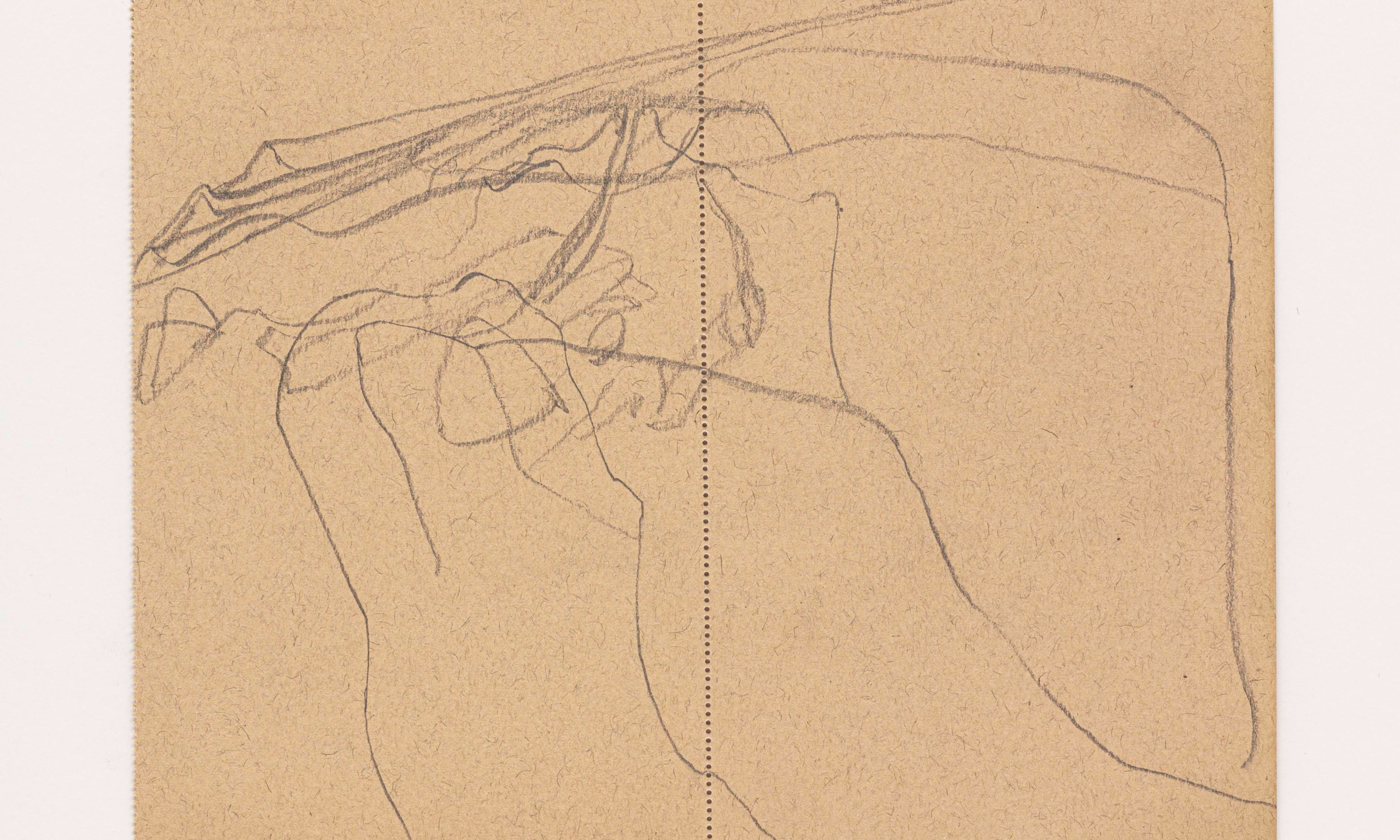Joseph Beuys's Untitled (Undated) Photo: Eva Herzog © Joseph Beuys Estate/VGBild-Kunst, Bonn, 2023
The conceptual work of the German artist Joseph Beuys (1921-86) has had an enduring impact on many artists. The extent of his legacy was in evidence during the centenary celebrations of his birth in 2021 and the many exhibitions that surveyed his life and career.
Beuys's role as a continued source of artistic inspiration is again being considered in a new London show. Joseph Beuys: 40 Years of Drawing at Thaddaeus Ropac (until 22 March) presents almost 100 of Beuys's works on paper and includes a room of pieces curated by the artist Antony Gormley, titled Sense: Beuys / Gormley. "Beuys and I found in drawing a fertile ground, which runs parallel to those actions that we have found necessary to make on and with the world," says Gormley, whose own works are shown alongside those of Beuys.
Other British artists have felt compelled to respond to the Beuys exhibition. Phyllida Barlow, who represented the UK at the 2017 Venice Biennale, has written a poem inspired by four of Beuys's drawings that are currently on show in London.
(with reference to the following drawings—111, Erdlinien: Tafel 31, Tafel 37, Tafel 42)
‘what is drawing?’
‘when two surfaces touch?’
‘that could be painting, sculpture, photography, printmaking…’
‘maybe, but for drawing it requires no further explanation…
any surface with another surface touching it –
which could be the trace of lead from a pencil, a swipe of cement, a collaged leaf,
onto anything from paper to brick, from cardboard to steel…’
—————————————————————————-
a pencil line unwinds across the paper,
it offers only itself,
a line executed more by blindness
than evidence of something in the world…
but this contact between mind and hand is evidence,
shrewd, calculating evidence of a moment,
when time and action unite
with minimum interference, minimum expectation,
other than pencil on paper doing their most basic of tasks –
to touch each other –
and we watch this line,
tracing it back and forth–
it refuses to be committed to memory,
its scrawl both familiar but unique,
informing us of that human urgency,
to show that someone was here…
— Phyllida Barlow,
27 December 2022

